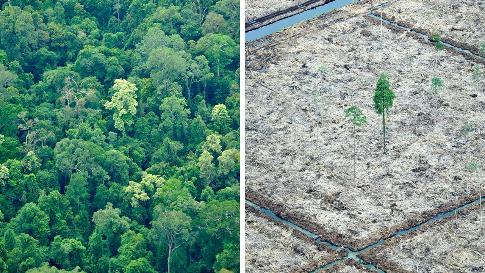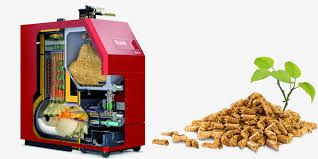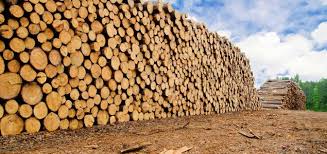New World Energy
Power and heating Solutions
Biomass Renewable Fuel
Research shows that Vegetable biofuel is an economically viable replacement for wood fuel, with a cost benefit ratio of ~1.25. this has led to the creation of a vegetation based bi product that can be used for fuel.
The analysis of a fuel switch from wood fuel to renewable biomass shows a negative cost in achieving CO2 reduction targets, ref #1. This means no additional cost is incurred to adopt this type of fuel, with the positive effect on the climate of a higher level of CO2 absorption.
Potentially, several million tonnes of this fuel is available, and can replace wood fuel at the ratio of 1:1.7 biomass vs wood. Such a switch could save ~5000 hectares of forest from deforestation, annually.
If effectively managed and co-ordinated, it would develop a carbon sink equivalent to 1980’s’ stock by 2030. Achieved through a reduction of deforestation, developing a carbon stock in the existing forest and a sustainable development of forest resources.
Vegetation biomass fuel vs Wood bio fuel
There is a potential of >14 million tonne of biomass fuel production that could substitute about >28 million tonne of wood fuel.
Current research examines the relationship of the life cycles of cereal husk burning vs wood burning, and its effect on the environment. Its key findings is the net effect on the environment and cost.
To achieve the equivalent energy
Husk burning by tonne Wood Burning by tonne equivalent
1 1.63
Current deforestation creates a gap in the energy lifecycle, leading to more carbon in the environment as reduction in tree stock = reduction in carbon absorption.
A move to using this type of biomass fuel would help the UK reduce its effect on the worlds environment.
UK - Briquette and Pellett Usage – Source Gov.uk
UK - Briquette and Pellett Usage – Source Gov.uk
Volume consumed - 2013 600k tonnes
2018 est 695k tonnes
Energy/Emissions Comparison
Emission Factor based on energy (g/MJ) Non_Biogenic emission CO2 per fuel Kg Biogenic emission CO2 per fuel Kg
Fuel Type CO2 CO CH4 TNMOC N2O GWC MJ/Kg
Wood 90.7 4.34 0.26 0.53 0.0059 124.17 15.12 1.877 0
Biomass 84.5 3.74 0.41 0.0169 0.0169 34.76 13.03 0.453 1.101
Fuel Type CO2 CO CH4 TNMOC N2O GWC MJ/Kg
Wood 90.7 4.34 0.26 0.53 0.0059 124.17 15.12 1.877 0
Biomass 84.5 3.74 0.41 0.0169 0.0169 34.76 13.03 0.453 1.101
Product uses
1 Domestic Heating & Hot Water 2 Commercial Heating & Hot Water
3 Plastics Manufacture 4 Animal Feed
1 Domestic Heating & Hot Water 2 Commercial Heating & Hot Water
3 Plastics Manufacture 4 Animal Feed
ref #1:INTERNATIONAL JOURNAL of RENEWABLE ENERGY RESEARCH - Md.Ahiduzzaman and S. Islam, Vol.6, No.4, 2016


